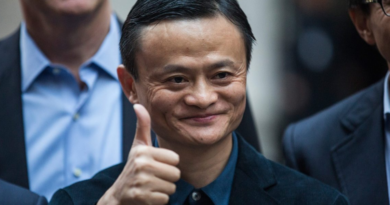LinkedIn shuts service in China, lays off employees
LinkedIn is suspending its job application service in China, the last remaining vestige of what was once one of the few successful foreign digital platforms in the country.
On Monday, the Microsoft-owned social media company announced that it would be suspending its InCareer job application service starting Aug. 9. “InCareer faced fierce competition and a challenging macroeconomic climate, which ultimately led us to the decision of discontinuing the service,” the company wrote on Monday.
The company separately announced in a letter from LinkedIn CEO Ryan Roslansky that it would be laying off 716 employees. The job cuts will hit LinkedIn’s China operations as well as other global departments. The company will discontinue its product and engineering teams in China, and reduce its sales and marketing departments. LinkedIn’s remaining China business will focus on helping companies in the country access its talent and learning programs.
China is currently going through a jobs slowdown, with Chinese companies hiring fewer people as the economy continues to recover from tough COVID controls put in place throughout the pandemic. Tech firms in particular, once a large employer of Chinese college graduates, have slowed hiring following pressure from the country’s crackdown on the sector through 2021 and 2022.
In the third quarter of 2022, demand for fresh college graduates among Chinese companies fell by 12.2% year-on-year, according to a report from jobs platform Boss Zhaopin. In March, China’s statistics bureau reported that 19.6% of Chinese people aged between 16 and 24 were unemployed.
LinkedIn in China
LinkedIn used to be one of the few foreign social media platforms allowed to operate in China and directly conncect Chinese and non-Chinese users.
In 2014, LinkedIn agreed to offer a localized version of the platform that complied with Chinese rules on content.
“LinkedIn’s absence in China would deny Chinese professionals a means to connect with others on our global platform, thereby limiting the ability of individual Chinese citizens to pursue and realize the economic opportunities, dreams and rights most important to them,” LinkedIn’s then-CEO Jeff Weiner wrote at the time.
LinkedIn’s social media peers, like Facebook, Twitter, and Instagram, are all blocked in China. TikTok is also not available in China, with developer ByteDance instead offering “Douyin,” a short-video app for the Chinese market that complies with Beijing’s rules on content.
Yet in October 2021, LinkedIn announced that it would discontinue its popular content publishing and social networking functions in favor of a stripped-down application that solely focused on job applications. The company cited “a significantly more challenging operating environment and greater compliance requirements” for its decision.
LinkedIn’s decision was part of a steady retreat from Western tech companies, with Yahoo, Amazon’s Kindle, and Airbnb all announcing an end to their Chinese businesses.
The focus on job applications appears to have backfired for LinkedIn. The job search and application app faced stiff competition from local Chinese competitors.
InCareer had under a million monthly active users by the end of March, according to the South China Morning Post citing data from research firm Analysys, far below the 18 million users that used competitor 51Job.
Nor could LinkedIn’s stripped-down app entirely avoid scrutiny from Chinese censors. Regulators were reportedly worried that foreigners could still communicate directly with Chinese employees through the service.
“This is a problem because authorities cannot track the conversations,” one unnamed Chinese regulatory official told the Financial Times.
Clarification (May 9, 2023): This article has been updated to clarify that LinkedIn’s job cuts are global.


